In any normal year, one of the many highlights of the Nuffield Scholarship journey is taking part in a Global Focus Programme (GFP).
This involves travelling to six countries to develop an understanding of local and international best practice in agriculture; meeting with progressive farmers, businesses, organisations and government officials along the way.
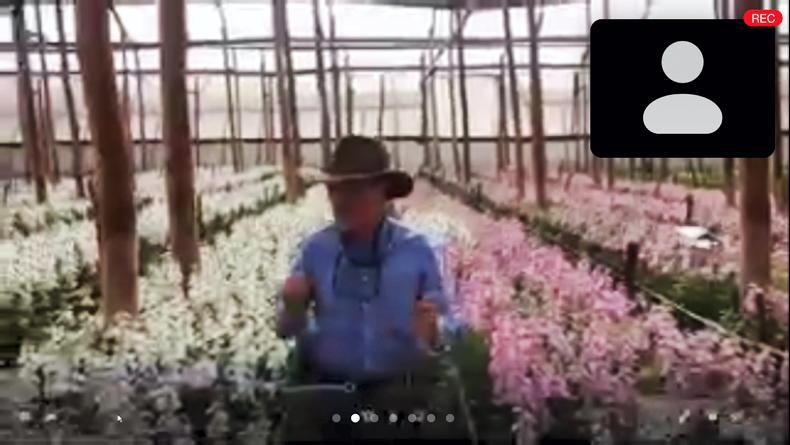
Images from the virtual farm tours in Kenya for the 2020 Nuffield scholars
However, what do you do when it’s 2020 and we’re in the middle of a global pandemic? Well, sure, just like every other meeting and family gathering this year, you give it a go over Zoom.
As 2020 scholars, we are very thankful to the organiser of the Kenyan leg of the trip, Sarah Flowers, who organised four farm “visits” in Kenya.
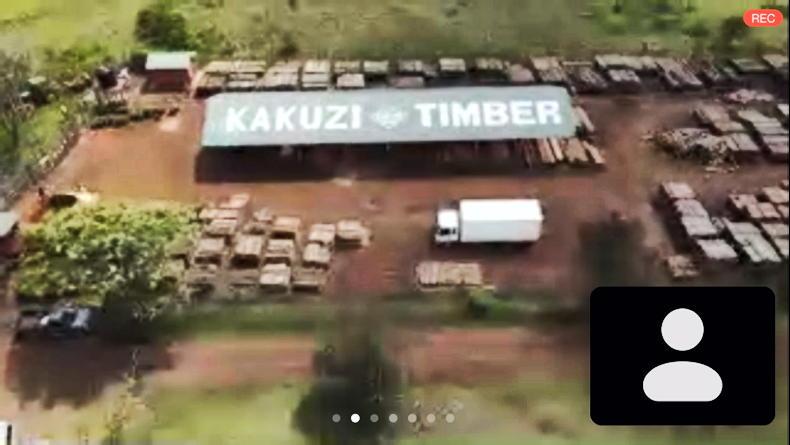
Images from the virtual farm tours in Kenya for the 2020 Nuffield scholars
Some quick facts about Kenya:
It has a land area of 570,000sq km (about seven times the size of Ireland). It has a population of 53.7 million. Thirty-seven per cent of the population derives a main income from agriculture while at least 75% derive some proportion of income from agriculture. Seventy-five per cent of land is considered arid or semi-arid by the FAO (Food and Agriculture Organisation of the United Nations).Yoani
Our first stop of the trip was down the Mombasa Road – southeast of the capital city, Nairobi, with Robin Stanley of Yoani Farm.
Robin is a third-generation farmer. His grandfather bought their 5,000+ acres in 1947. Interestingly, each of their 200+ dairy cows are called to milking by name (and then milked by hand) twice a day by a team of up to 17 men.
Robin feels this is a worthwhile system, as each cow gets a thorough health check morning and night, as well as creating employment within the local community.
Robin shared many of the challenges he and his family have faced over the years – everything from water supply, access to finance, maintaining milk production during their annual dry periods and security, to name but a few.
Similar to Ireland, his primary production goals revolve around supplying quality forage for his herd in the form of grazed grass when available, the production of quality silage and the genetic improvement of his herd.
Robin places a great emphasis on the selection of heifers which enter the milking herd. He strives to breed the ideal cow for his local climate and environment, which he says is ¾ Friesian, ¼ Boran (a local breed developed from the native Zebu cattle).
Robin and his team pasteurise their milk in a wood-fired pasteuriser before it is collected each morning. Similar to the milking, silage making involves a good bit of hands-on work. The silage is cut and lifted with a Taarup harvester, but a man stands in the trailer to fill out the load. Once tipped, the load is spread and compacted by a team of men on the pit. No fancy JCB for this part of the job!
In 2010, Robin and his wife Anita diversified into providing boarding facilities for cats and dogs. They are now the leading operator for small animal import and export in Kenya.
Kisima
Our next early morning Zoom call took us to the northern slopes of Mount Kenya, to the 11,800ac Kisima Farm.
This farm was originally granted to Will Powys as part of the soldier settler scheme after World War I. A number of family members are still involved with what is now a large corporate company, with 22 Kenyan shareholders.
Initially, Merino sheep were the main enterprise. The farm, located at 2,400m above sea level, now focuses on floriculture, forestry and arable crops.
The floriculture enterprise is their biggest in terms of turnover and employment. Eighteen hectares of flowers are grown under plastic with a further 4ha planted outdoors. These flowers are exported to markets in the Netherlands and the UK.
Pesticide usage is kept low thanks to the use of integrated pest management practices, and rainwater is harvested, making Kisima one of the few Kenyan farms not using borehole water in floriculture operations. As a result, they sustain over 400 jobs for locals.
Wheat and barley are their primary arable crops, but their rotation also includes peas, canola (oilseed rape) and potatoes. In recent years, they have invested in GPS for precision agriculture and minimum till practices. They are looking at the possibility of doing cover crops. Alongside their farming, forestry and floriculture operations, Kisima Farm undertakes wide-ranging foundation work within the realms of agricultural extension, education, healthcare, water management and environmental conservation.
A key part of their agricultural extension program is the production of quality seed potatoes. This has allowed smallholder farmers to increase potato yields up to five times; typically from 8t/ha to 40t/ha. Kisima use an aeroponics system to accelerate the process of producing seed, from three years down to 18 months.
Ausquest
Our next visit brought us back down, southeast of Nairobi, to Ausquest Farm; owned and operated by Stuart Barden (2009 Nuffield Australia Scholar) and his wife Annie. Originally from New South Wales, Stuart saw the potential and need to grow food – in particular, protein crops – in East Africa. Having cleared 1,101ha of virgin Savana in 2012, they have been successfully growing mung beans and chickpeas.
They recently diversified into the production of quality baled silage for small-scale dairy farmers. Stuart gave us a tour of his farm in a pre-recorded video; showcasing not only his very nice fleet of silage equipment, which includes two Irish-made McHale bale wrappers.
He has two of every piece of equipment needed, although he only uses one at a time. Back-ups are needed in the event of a breakdown, as he doesn’t know how long it will take any part to clear customs on arrival in Kenya.
Even with his modern machinery and use of technology (like controlled traffic guidance), we were all left in no doubt that people are still the key to the Bardens’ success.
Stuart shared that he and his four full-time staff have learned a vast amount from each other. He also opens his farm up to a very wide and diverse group of visitors – not just so they can learn from his operation, but equally because of what he has been able to learn from others.
He stressed the importance of having a mutually beneficial relationship with his customers. He stated that it doesn’t matter if a customer is there for one bale or 100 bales, they need to have time set aside for them. I think that is a very worthy lesson for us all.
Kakuzi
Our final visit brought us to Kakuzi Plc, some 60km northeast of Nairobi.
This 14,000ha operation is listed on both the Nairobi and London stock exchanges. It is a highly diversified business, being Kenya’s largest exporter of avocados as well as producing macadamia nuts, tea, blueberries, livestock and commercial forestry.
Here, we enjoyed a pre-recorded video from each of the managers on their individual enterprises. We witnessed some of the effort, thought and hard work that goes into each of their products. They grow their own avocado and macadamia plants from seeds in their nursery. Then, grafting them, planting them out by hand and waiting three and five years respectively for their first real harvest.
This allows them to provide neighbouring farmers with high-quality avocado plants as part of their “smallholder avocado” programme. They also offer training to farmers in best growing practice as well as taking responsibility for the marketing and processing of the avocados.
Each member of the team made it quite clear that they could not survive without the community around them. Kakuzi has its own timber yard on-site to process, treat and sell their own timber products into the local community. Further to this, they have donated desks and chairs to local schools. They have a butchery on site to process and sell their beef locally. The livestock manager was also proud to tell us that they have improved the genetics of their beef herd. As a result, they can also sell stock to improve the herds of other farmers.
Although our physical challenges, political situation and climate may differ from that of Kenya, we learned it is the individuals and companies who innovate, work hard and produce and market quality products - all without losing the all-important human factor - who enjoy success in the long term.
What I picked up on most from each farm operation was the importance they placed on having a strong relationship with their local communities.
Each of them had different means of achieving this, but they all understood the benefits of sharing some of their successes within their localities.
Read more
Looking after the 'top paddock'
Agri sustainability stakeholder forum required – Nuffield Scholar
In any normal year, one of the many highlights of the Nuffield Scholarship journey is taking part in a Global Focus Programme (GFP).
This involves travelling to six countries to develop an understanding of local and international best practice in agriculture; meeting with progressive farmers, businesses, organisations and government officials along the way.

Images from the virtual farm tours in Kenya for the 2020 Nuffield scholars
However, what do you do when it’s 2020 and we’re in the middle of a global pandemic? Well, sure, just like every other meeting and family gathering this year, you give it a go over Zoom.
As 2020 scholars, we are very thankful to the organiser of the Kenyan leg of the trip, Sarah Flowers, who organised four farm “visits” in Kenya.

Images from the virtual farm tours in Kenya for the 2020 Nuffield scholars
Some quick facts about Kenya:
It has a land area of 570,000sq km (about seven times the size of Ireland). It has a population of 53.7 million. Thirty-seven per cent of the population derives a main income from agriculture while at least 75% derive some proportion of income from agriculture. Seventy-five per cent of land is considered arid or semi-arid by the FAO (Food and Agriculture Organisation of the United Nations).Yoani
Our first stop of the trip was down the Mombasa Road – southeast of the capital city, Nairobi, with Robin Stanley of Yoani Farm.
Robin is a third-generation farmer. His grandfather bought their 5,000+ acres in 1947. Interestingly, each of their 200+ dairy cows are called to milking by name (and then milked by hand) twice a day by a team of up to 17 men.
Robin feels this is a worthwhile system, as each cow gets a thorough health check morning and night, as well as creating employment within the local community.
Robin shared many of the challenges he and his family have faced over the years – everything from water supply, access to finance, maintaining milk production during their annual dry periods and security, to name but a few.
Similar to Ireland, his primary production goals revolve around supplying quality forage for his herd in the form of grazed grass when available, the production of quality silage and the genetic improvement of his herd.
Robin places a great emphasis on the selection of heifers which enter the milking herd. He strives to breed the ideal cow for his local climate and environment, which he says is ¾ Friesian, ¼ Boran (a local breed developed from the native Zebu cattle).
Robin and his team pasteurise their milk in a wood-fired pasteuriser before it is collected each morning. Similar to the milking, silage making involves a good bit of hands-on work. The silage is cut and lifted with a Taarup harvester, but a man stands in the trailer to fill out the load. Once tipped, the load is spread and compacted by a team of men on the pit. No fancy JCB for this part of the job!
In 2010, Robin and his wife Anita diversified into providing boarding facilities for cats and dogs. They are now the leading operator for small animal import and export in Kenya.
Kisima
Our next early morning Zoom call took us to the northern slopes of Mount Kenya, to the 11,800ac Kisima Farm.
This farm was originally granted to Will Powys as part of the soldier settler scheme after World War I. A number of family members are still involved with what is now a large corporate company, with 22 Kenyan shareholders.
Initially, Merino sheep were the main enterprise. The farm, located at 2,400m above sea level, now focuses on floriculture, forestry and arable crops.
The floriculture enterprise is their biggest in terms of turnover and employment. Eighteen hectares of flowers are grown under plastic with a further 4ha planted outdoors. These flowers are exported to markets in the Netherlands and the UK.
Pesticide usage is kept low thanks to the use of integrated pest management practices, and rainwater is harvested, making Kisima one of the few Kenyan farms not using borehole water in floriculture operations. As a result, they sustain over 400 jobs for locals.
Wheat and barley are their primary arable crops, but their rotation also includes peas, canola (oilseed rape) and potatoes. In recent years, they have invested in GPS for precision agriculture and minimum till practices. They are looking at the possibility of doing cover crops. Alongside their farming, forestry and floriculture operations, Kisima Farm undertakes wide-ranging foundation work within the realms of agricultural extension, education, healthcare, water management and environmental conservation.
A key part of their agricultural extension program is the production of quality seed potatoes. This has allowed smallholder farmers to increase potato yields up to five times; typically from 8t/ha to 40t/ha. Kisima use an aeroponics system to accelerate the process of producing seed, from three years down to 18 months.
Ausquest
Our next visit brought us back down, southeast of Nairobi, to Ausquest Farm; owned and operated by Stuart Barden (2009 Nuffield Australia Scholar) and his wife Annie. Originally from New South Wales, Stuart saw the potential and need to grow food – in particular, protein crops – in East Africa. Having cleared 1,101ha of virgin Savana in 2012, they have been successfully growing mung beans and chickpeas.
They recently diversified into the production of quality baled silage for small-scale dairy farmers. Stuart gave us a tour of his farm in a pre-recorded video; showcasing not only his very nice fleet of silage equipment, which includes two Irish-made McHale bale wrappers.
He has two of every piece of equipment needed, although he only uses one at a time. Back-ups are needed in the event of a breakdown, as he doesn’t know how long it will take any part to clear customs on arrival in Kenya.
Even with his modern machinery and use of technology (like controlled traffic guidance), we were all left in no doubt that people are still the key to the Bardens’ success.
Stuart shared that he and his four full-time staff have learned a vast amount from each other. He also opens his farm up to a very wide and diverse group of visitors – not just so they can learn from his operation, but equally because of what he has been able to learn from others.
He stressed the importance of having a mutually beneficial relationship with his customers. He stated that it doesn’t matter if a customer is there for one bale or 100 bales, they need to have time set aside for them. I think that is a very worthy lesson for us all.
Kakuzi
Our final visit brought us to Kakuzi Plc, some 60km northeast of Nairobi.
This 14,000ha operation is listed on both the Nairobi and London stock exchanges. It is a highly diversified business, being Kenya’s largest exporter of avocados as well as producing macadamia nuts, tea, blueberries, livestock and commercial forestry.
Here, we enjoyed a pre-recorded video from each of the managers on their individual enterprises. We witnessed some of the effort, thought and hard work that goes into each of their products. They grow their own avocado and macadamia plants from seeds in their nursery. Then, grafting them, planting them out by hand and waiting three and five years respectively for their first real harvest.
This allows them to provide neighbouring farmers with high-quality avocado plants as part of their “smallholder avocado” programme. They also offer training to farmers in best growing practice as well as taking responsibility for the marketing and processing of the avocados.
Each member of the team made it quite clear that they could not survive without the community around them. Kakuzi has its own timber yard on-site to process, treat and sell their own timber products into the local community. Further to this, they have donated desks and chairs to local schools. They have a butchery on site to process and sell their beef locally. The livestock manager was also proud to tell us that they have improved the genetics of their beef herd. As a result, they can also sell stock to improve the herds of other farmers.
Although our physical challenges, political situation and climate may differ from that of Kenya, we learned it is the individuals and companies who innovate, work hard and produce and market quality products - all without losing the all-important human factor - who enjoy success in the long term.
What I picked up on most from each farm operation was the importance they placed on having a strong relationship with their local communities.
Each of them had different means of achieving this, but they all understood the benefits of sharing some of their successes within their localities.
Read more
Looking after the 'top paddock'
Agri sustainability stakeholder forum required – Nuffield Scholar






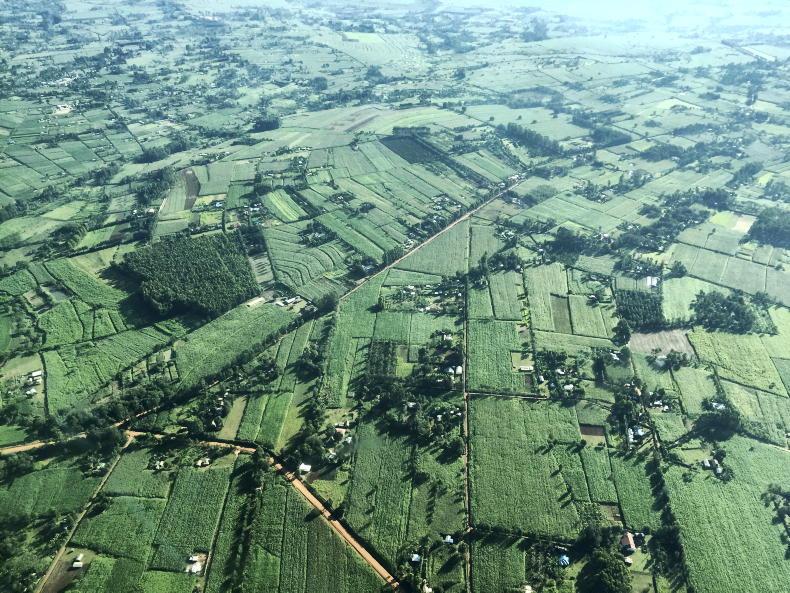
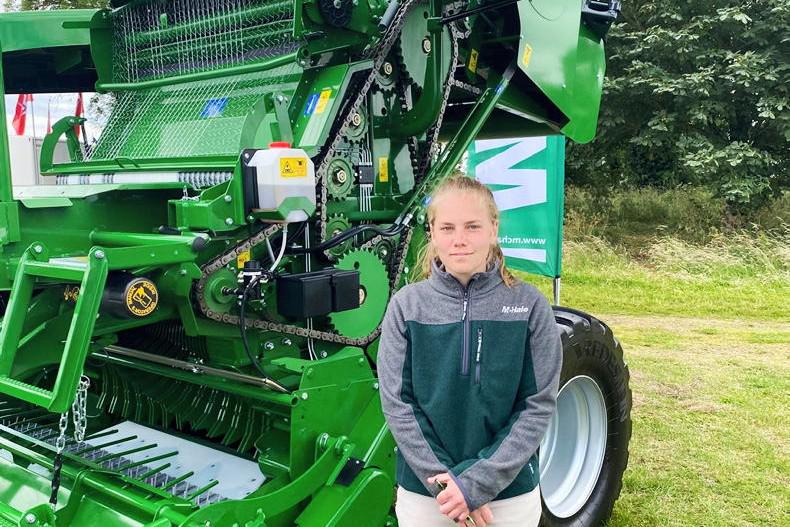
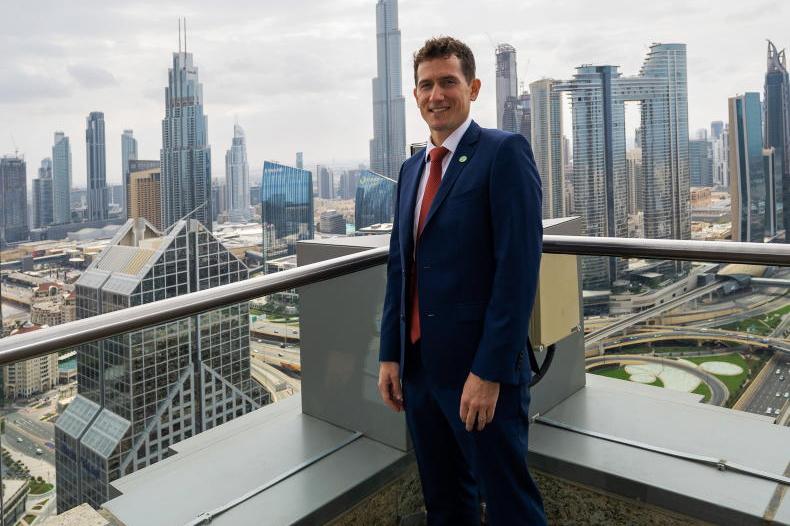
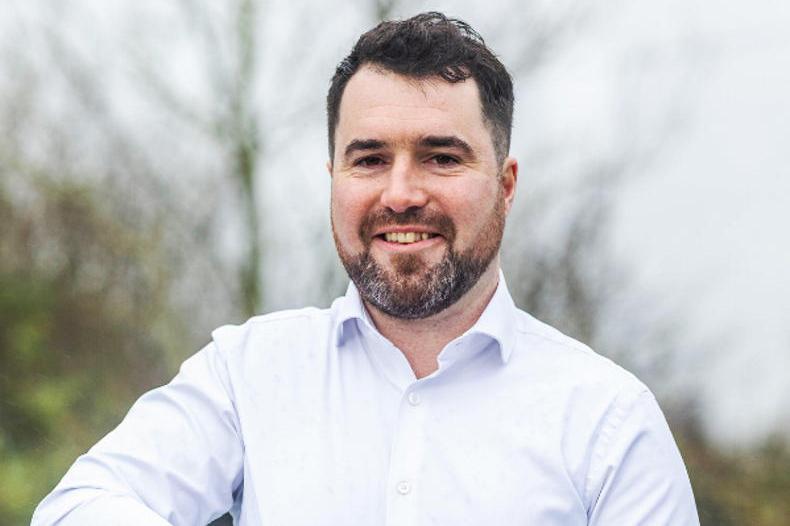
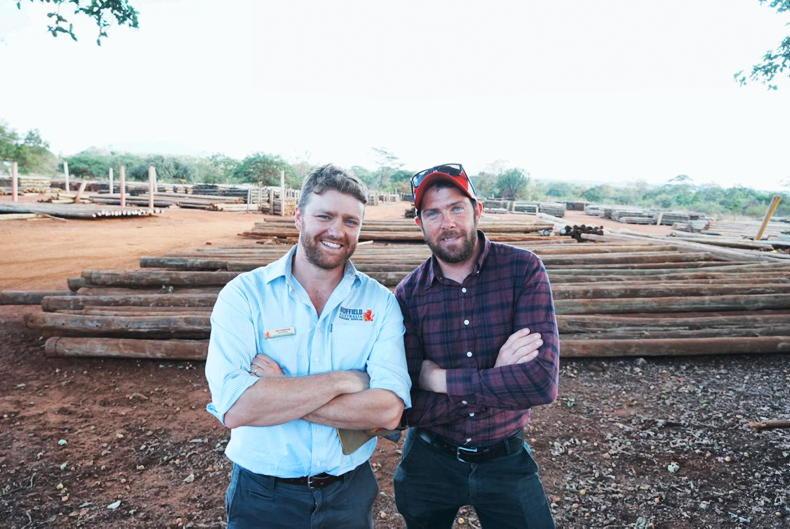
SHARING OPTIONS